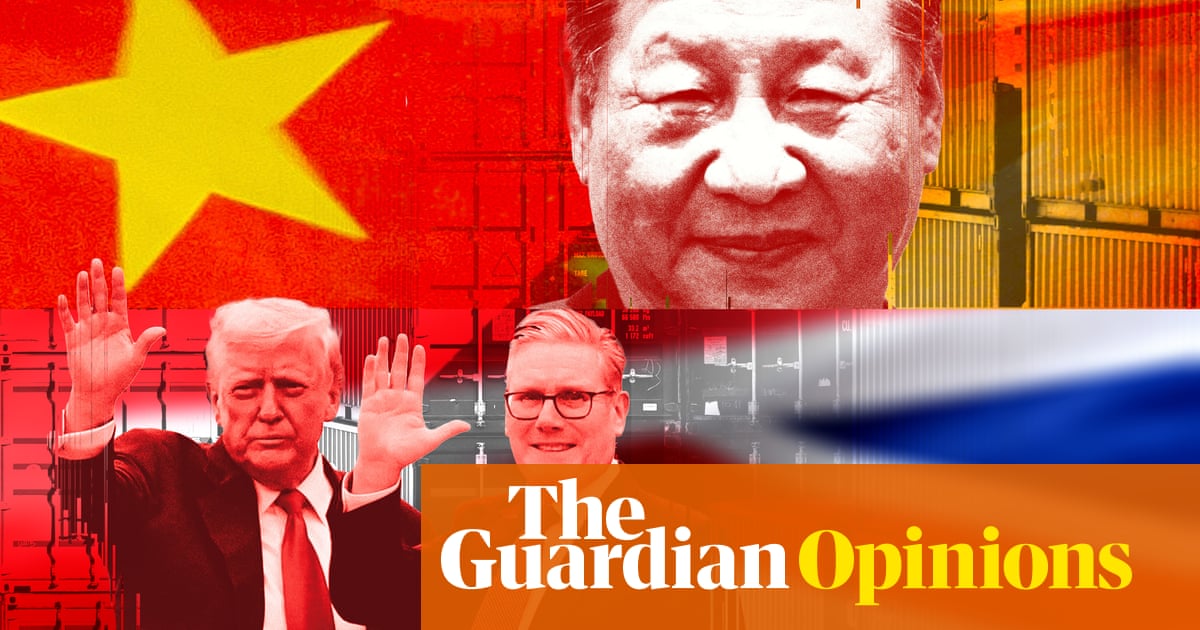The Suez crisis in 1956 was a humiliating moment of truth for the UK. Faced with implacable opposition from the US, Anthony Eden’s government was forced to abandon military action in Egypt. Capitulation to American pressure was a recognition of Britain’s diminished status on the world stage.
The trade deal agreed between Washington and Brussels this week lacks the drama of troops being sent in to recapture one of the world’s key waterways, but it is the EU’s Suez moment all the same. What’s more, European politicians know as much.
Donald Trump said the outcome was “great”, and for the US that was certainly the case, since the EU made all the concessions and got nothing in return. Most European goods exported to the US will face a 15% tariff, while the already small tariffs on US goods entering the EU will be eliminated altogether. European companies have been forced to accept higher costs as the price of access to the world’s biggest market.
That’s by no means all. The EU has also committed itself to $600bn (£450bn) of US investments, $750bn in long-term fossil-fuel energy purchases and to buy more US military kit. Plans for an EU digital services tax that would affect US tech giants had already been dropped.
As far as the financial markets were concerned, it was reason to feel relieved, since this one-sided peace pact removed the threat of a tit-for-tat trade war. It isn’t that economists think tariffs will be good for the global economy, but rather that they feared an even worse outcome. EU trade negotiators were of the same opinion. For Brussels, any deal was better than no deal.
But appeasement always has its critics, and condemnation of the deal was swift in coming – particularly from France. François Bayrou, the prime minister, said it was a “dark day” for Europe. His predecessor, Michel Barnier, said the agreement was an admission of weakness.
Posting on X, the entrepreneur and commentator Arnaud Bertrand said the terms of the agreement represented one of the most expensive imperial tributes in history. He added: “This does not even remotely resemble the type of agreements made by two equal sovereign powers. It rather looks like the type of unequal treaties that colonial powers used to impose in the 19th century – except this time, Europe is on the receiving end.”
That’s a reasonable conclusion. The rationale behind ever-closer union within the bloc was that an EU armed with its own currency would be able to match the US, not just in terms of economic prowess but in geopolitical influence as well. The euro would be a rival to the dollar, and strong growth would give Europe political clout. Pooling sovereignty in areas such as trade would ensure that Europe punched above its weight.
Things haven’t quite gone according to plan. Europe’s economic performance since monetary union has been dismal, and the gap with the US has widened rather than narrowed. Individual countries have had their scope for independent action systematically reduced, with restrictions on state aid, procurement and industrial policy. Handing the European Commission responsibility for negotiating trade deals hasn’t prevented Europe being steamrolled by the US. Indeed, the trade deal the EU has agreed with the US is actually less favourable than the one that Keir Starmer has signed up to for post-Brexit Britain.
The US-EU agreement needs to be approved by EU countries, which could be a problem if the hostile French reaction is anything to go by. Many details remain unclear and some of the terms will prove hard, if not impossible, to enforce. There is no way, for instance, that the EU can force private companies in Europe to invest across the Atlantic.
Moreover, the deal may prove to be a pyrrhic victory for Trump if, as looks increasingly likely, tariffs increase the cost of goods in the US. Coupled with the clampdown on migration, there is the clear risk that growth will slow and inflation will rise. Share prices on Wall Street are high in expectation that the good times will continue. They may not.
But while there would be a tinge of schadenfreude in Europe were the bubble in US asset prices to burst, any joy in Trump’s misfortune would prove short-lived.
Europe’s fortunes are tied to those of the US. First, it needs access to the American market because its economic model relies so heavily on exports. This is particularly true of Germany, which runs large and persistent trade surpluses. German carmakers can probably just about live with 15% tariffs, but they would have been ruined had Trump followed through on his threat to impose levies of 30%.
Second, the EU needs the US to help it counter the perceived threat from Russia. It sees US energy as a substitute for Russian oil and gas, while the agreement to buy more American military goods is a way of tying the US more firmly into Nato.
The contrast with China is stark. Beijing did not roll over when Trump imposed punitive tariffs earlier this year. Instead, it stood up to US bullying by announcing retaliatory measures of its own. The markets went into full panic mode, with China’s robust response triggering a sharp fall in US bond prices. Faced with a financial meltdown, Trump watered down his tariff plans.
The EU’s surrender to Trump shows that China is now the only serious rival to American hegemony. Like Britain since Suez, the EU’s subservience to the US is plain for all to see.
